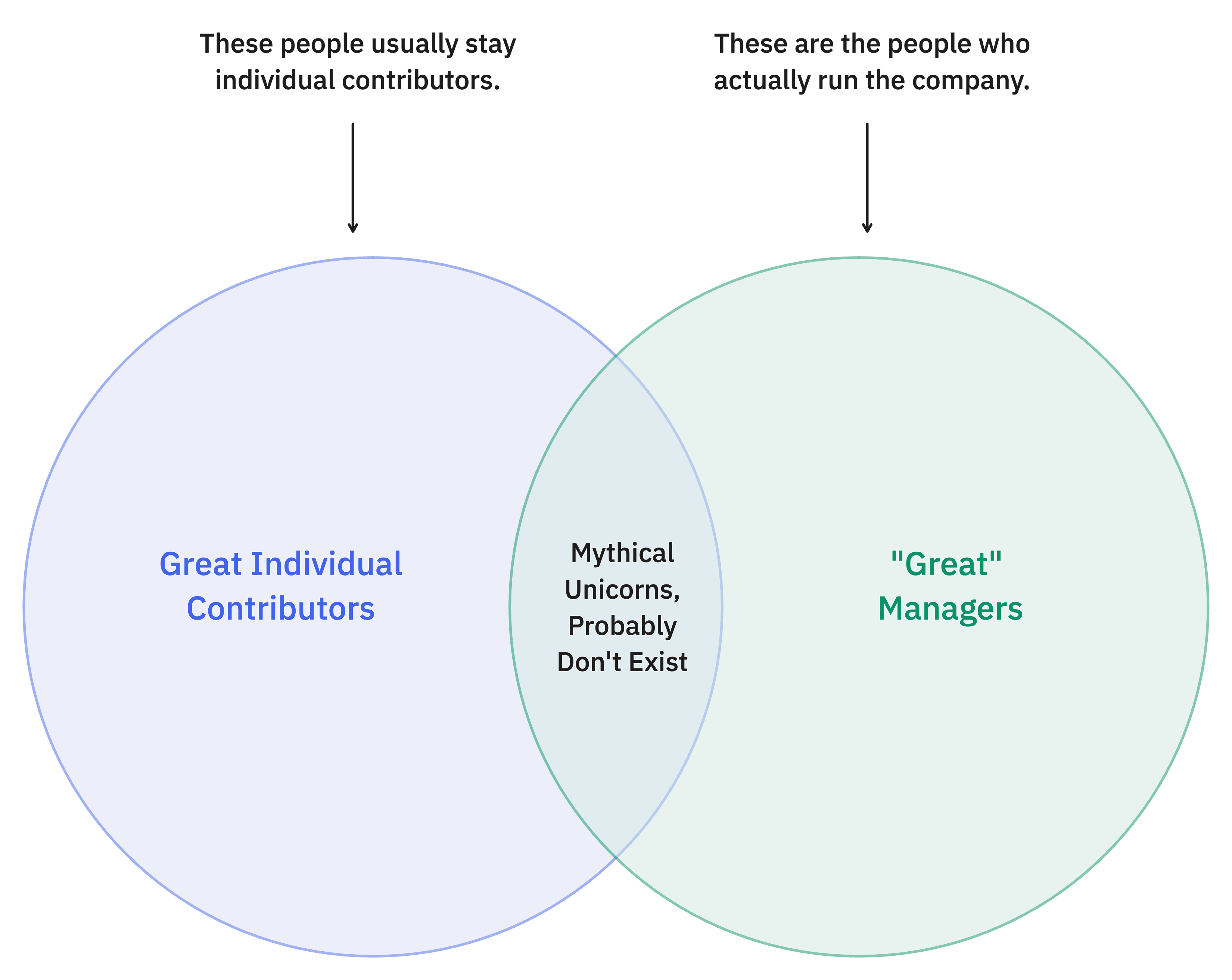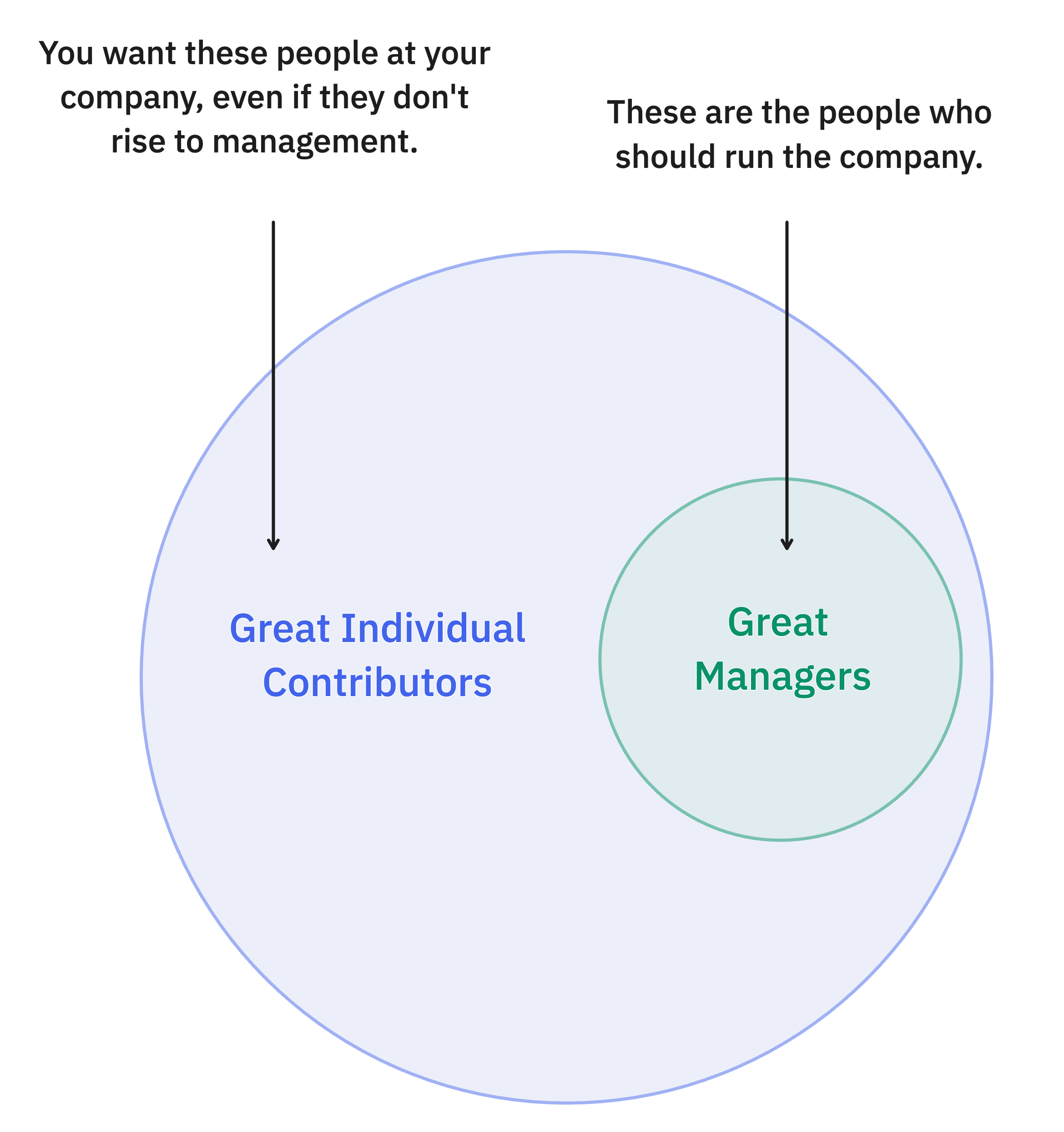The Myth of Great Managers
Most companies assume that management ability and individual contributor ability are separate skillets that don't really correlate with each other (and are perhaps slightly negatively correlated).
For example, people assume that the software engineers who are the best at writing code won't necessarily be the best at managing other software engineers. The best designers won't necessarily make the best design managers. The best accountants won't make the best accounting managers. And so on.
As a result, this is how most companies end up thinking about talent:

Most companies assume even if this venn diagram overlaps a bit, the circles are mostly separate. Some people are great individual contributors, and others are great managers. It's rare to be both, and if you're neither, you might want to start looking for another job!
It's the "great" managers who go on to occupy leadership positions, while the individual contributors usually stay individual contributors. This is especially common in software engineering, where the "management track" is explicitly separated from the "individual contributor" track.
Other job functions may not make this distinction explicit, but you'll see it play out if you work long enough in corporate America. The people who ascend the management ranks and become directors, VPs, and CxOs almost always do so because of their (perceived) management abilities, not usually because they are excellent at their craft, whatever that may be.
But actually, this misunderstands what makes a great manager. A great manager must be both a great manager and a great individual contributor. It's true that just because you're a great individual contributor doesn't also mean that you'll be a great manager.
However, the one thing I'm certain of is that if you aren't a great individual contributor, it is impossible for you to be a great manager. Let me repeat that another way. There is no such thing as someone who's a subpar individual contributor but a good manager. To be a great manager, you must first be a great individual contributor.
But don't just take my word for it. Here's what three of the greatest CEOs in history have to say about it:
I think that every leader should be an expert in what they’re leading. There should be no people managers in the entire company.
- Brian Chesky
You know who the best managers are? They're the great individual contributors who never, ever want to be a manager, but decide they have to be a manager, because no one else is going to be able to do as good a job as them.
- Steve Jobs
I strongly believe that all managers in a technical area must be technically excellent. Managers in software must write great software or it's like being a cavalry captain who can't ride a horse!
- Elon Musk
These great CEOs all agree that the best managers are also great individual contributors. What I would add, however, is that being a great individual contributor is not enough to be a great manager. It is necessary, but not sufficient.
A great manager must also be, well, a great manager. She must know how to hire, fire, promote, communicate, organize, and galvanize. And it's true that many people who are excellent individual contributors lack those skills.
So corporate America is correct that being a great individual contributor does not necessarily make someone a great manager. But they draw from this the wrong conclusion. They assume that this means that it's being a great manager is simply separate from being a great individual contributor, and that you can do one without the other.
But this is wrong, because actually the venn diagram looks like this:

To summarize: Only some individual contributors are great managers, but all great managers are great individual contributors.
It is those rare individual who have both gifts - who are both great at their craft and talented leaders - who should lead your company if you want to succeed.